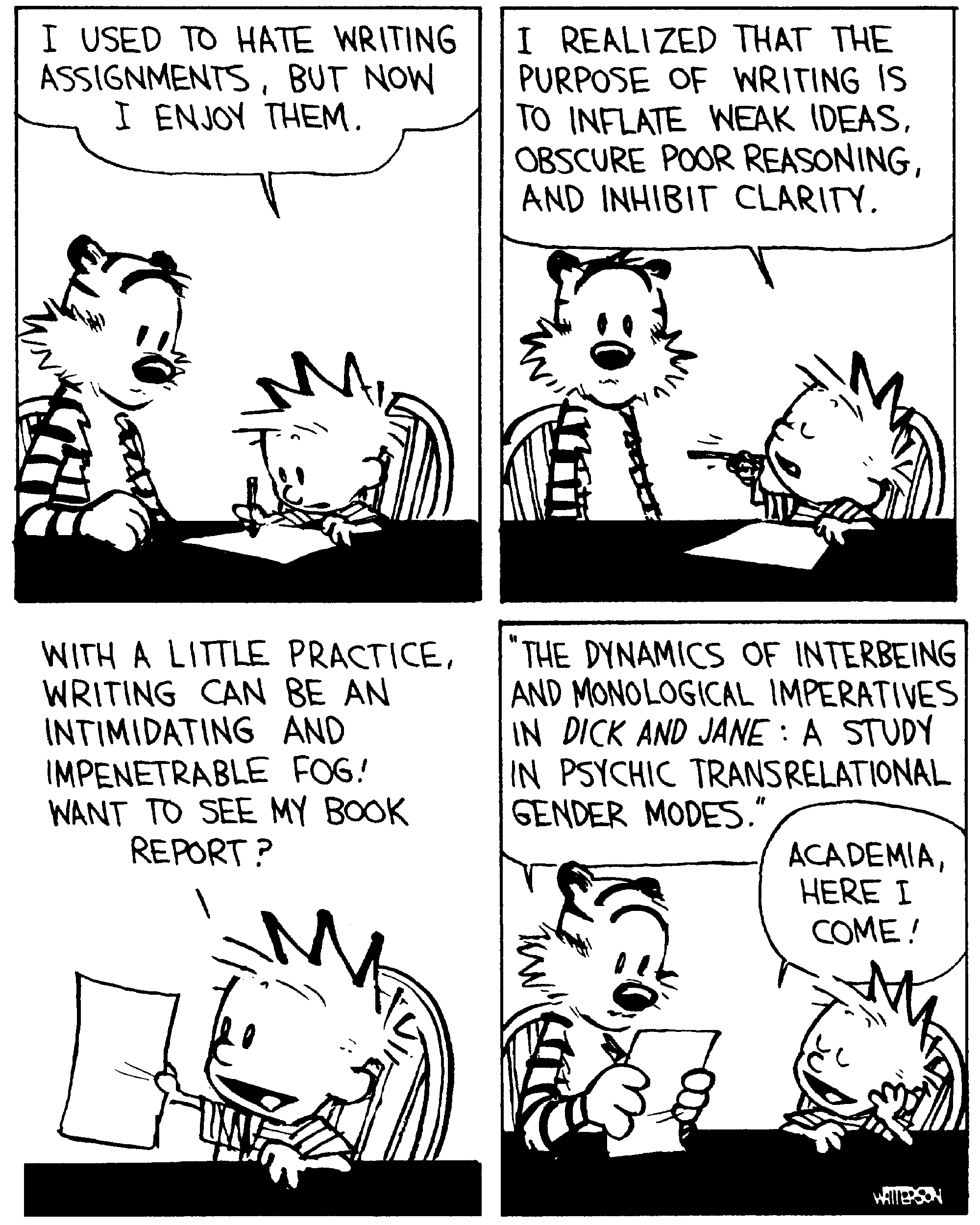It has been observed in a frequency all too significant that students upon submission of their written assignments have been inclined to have chosen a manner of composition that is too often far from one that is direct enough to be understood as conveying meaning in a fashion that is most expedient.
HUH??? I would be shocked if this wasn’t your initial response to this sentence. Chances are you had to read the sentence several times to discern:
Student’s writing is difficult to understand when they use passive voice.
Obviously the first sentence is a ridiculous exaggeration I created to make a point about passive voice and vague writing. If you have to stop and re-read sentences or paragraphs multiple times to get to their real meaning you are not alone. Too many writers use obtuse or vague writing and I provid recommendations for avoiding this type of writing in the post Our work doesn’t have to be obtuse to be important. The focus of this post is editing our writing from the passive to active voice.
Identifying Passive Voice
Rather then try to explain that passive voices occurs when a noun being acted upon is made the subject of the sentence I will use the following example:
Passive voice
The technology was Implemented
The technology is receiving the action but because it is the subject of the sentence it makes the sentence passive.
Active voice
Teachers implemented the technology.
Teachers are performing the action of implementing the technology which makes the sentence active.
There is an easier way to test to see if your sentence is passive or active. Just use Rebecca Johnson’s “by Zombies” test. If you can add “by Zombies” after the verb and it makes sense (grammatically), you probably have passive voice.
“by Zombies: Test
Consider our two earlier examples:
The technology was Implemented “by Zombies”. – makes sense so it is passive
Teachers implemented the technology “by Zombies”. – doesn’t make sense so it is active.
Warning – the Zombie test works for many examples but it doesn’t work for all. For more examples of sentences written in passive and active voice refer to:
Examples of Active and Passive Voice
http://examples.yourdictionary.com/examples-of-active-and-passive-voice.html
For a more sophisticated assortment of examples of fixes for passive voice refer to:
7 Examples of Passive Voice (And How To Fix Them)
http://www.dailywritingtips.com/7-examples-of-passive-voice/































